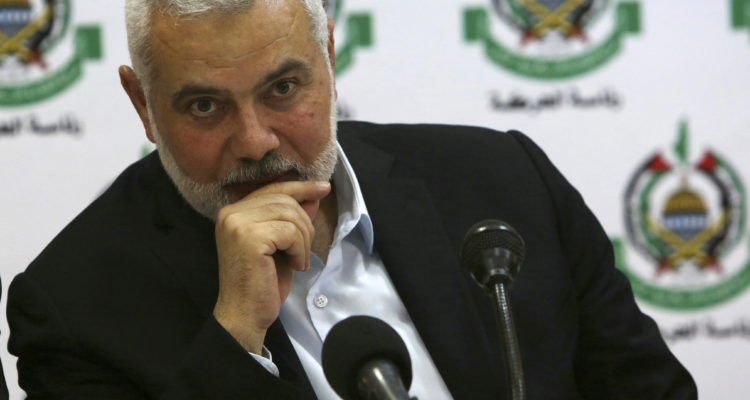This announcement comes after Hamas said they would reject any deal that wouldn’t include a permanent ceasefire and withdrawal of Israeli troops from Gaza.
By Vered Weiss, World Israel News
Ismail Haniyeh, the Qatar-based head of the Hamas political bureau, said he will visit Cairo to discuss the hostage release deal negotiated on Sunday in Paris, Ynet reported.
This announcement comes after Hamas said on Monday evening they would reject any deal that wouldn’t entail a permanent ceasefire and a withdrawal of Israeli troops from the Gaza Strip.
Although Haniyeh said that the permanent ceasefire was still a condition of Hamas agreeing to the deal, the fact that the Hamas leader is traveling to Paris to discuss the deal further may signal a willingness to negotiate the terms.
Although Israeli Prime Minister Benjamin Netanyahu initially called the deal “constructive” on Sunday, commenting on the remaining “significant gaps,” on Tuesday, he reaffirmed that Israel would not agree to a permanent ceasefire or the release of thousands of Palestinian prisoners as required by the deal.
“We will not compromise on anything less than total victory,” the Prime Minister said.
The hostage release proposal was negotiated by Qatari, Egyptian Israeli, and US intelligence chiefs on Sunday in Paris.
While Israel reportedly accepted the framework reached in Paris, Hamas rejected it Monday, demanding such a deal include both the mass release of terrorists held in Israeli jails as well as a conclusion to the current war and the withdrawal of the IDF from the Gaza Strip.
National Security Minister Itamar Ben-Gvir threatened to resign, which would cause a collapse of the current government if the Prime Minister accepted the Paris hostage deal in its current form.
The Paris hostage proposal involves a two-month pause in fighting and the release of hostages in two phases.
The first phase involves the increase of humanitarian aid in Gaza, the release of women, elderly, and wounded hostages, and hundreds of Palestinian security prisoners.
During the second phase, more aid will be sent, and civilian men and IDF soldiers would be released along with hundreds more Palestinian prisoners.
Families of hostages said they will continue protesting and demand the immediate release of hostages from Gaza.




